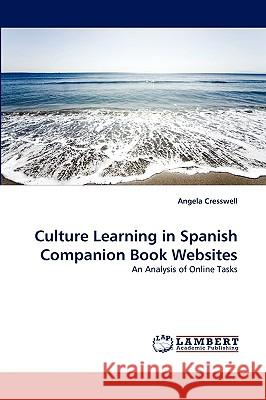Culture Learning in Spanish Companion Book Websites » książka
Culture Learning in Spanish Companion Book Websites
ISBN-13: 9783838347547 / Angielski / Miękka / 2010 / 100 str.
The Internet with its World Wide Web feature opened up a whole new frontier for language-culture learning that foreign language textbook authors have integrated into their programs. Designing tasks that progress beyond promoting learners' passive consumerism and reiteration of facts remains a goal and a challenge. This book examines and analyzes the online tasks associated with Spanish textbook programs, in light of prevailing culture learning concepts and other pedagogical paradigms posited by reputable foreign language educators. This work attempts to determine if the World Wide Web tasks fill the gap left by textbooks in facilitating second culture acquisition. This analysis should apprise foreign language and culture educators of the value of utilizing the World Wide Web as an authentic venue for culture learning. The analysis should also encourage online authors to create culture learning tasks that prompt students to use higher-level thinking skills.
The Internet with its World Wide Web feature opened up a whole new frontier for language-culture learning that foreign language textbook authors have integrated into their programs. Designing tasks that progress beyond promoting learners passive consumerism and reiteration of facts remains a goal and a challenge. This book examines and analyzes the online tasks associated with Spanish textbook programs, in light of prevailing culture learning concepts and other pedagogical paradigms posited by reputable foreign language educators. This work attempts to determine if the World Wide Web tasks fill the gap left by textbooks in facilitating second culture acquisition. This analysis should apprise foreign language and culture educators of the value of utilizing the World Wide Web as an authentic venue for culture learning. The analysis should also encourage online authors to create culture learning tasks that prompt students to use higher-level thinking skills.











